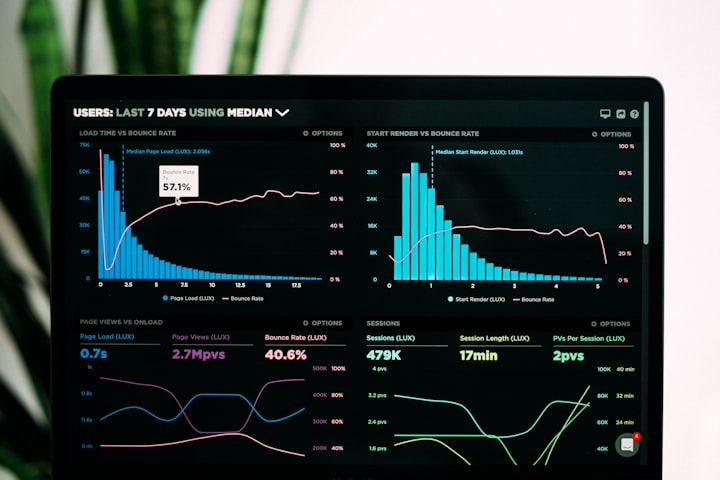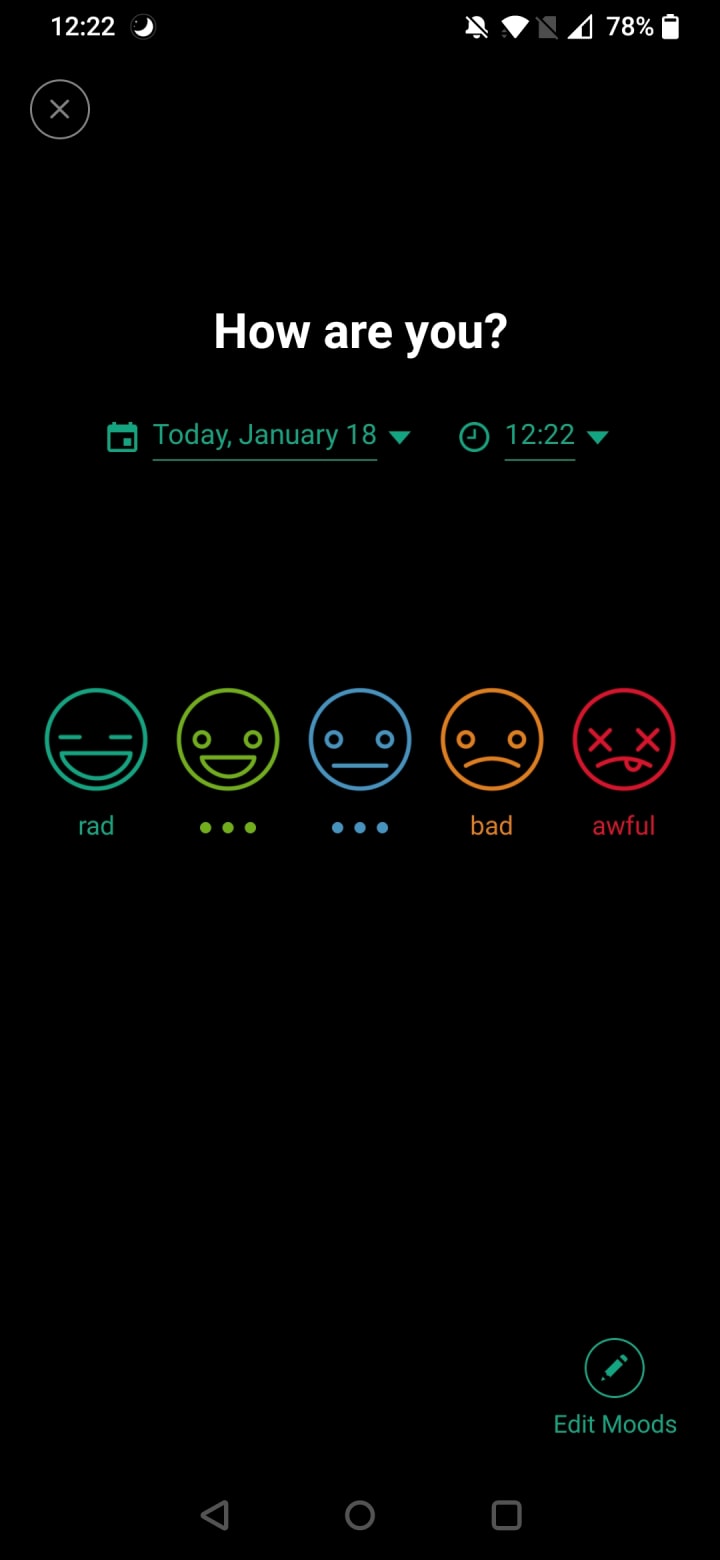I Experimented on Myself for Two Years
Here's what the data tell me. Tells me. Oh for fuck's sake, just pick one.

It started with an offhand comment from my therapist.
I'd been seeing her for about a year, to help recover from the trauma of a nasty head injury. I can't for the life of me remember what prompted it, but she suggested I keep track of my daily mood—the goal being to prove to myself that I wasn't miserable all the time.
She suggested a notebook, but this being the age of apps, I figured I could find something to automate the process. Besides, my handwriting is godawful.
I found an app called Daylio. It's almost stupidly simple. Every day at 7pm, it pops up to ask how my day was, and invites me to choose from five basic colour-coded moods (rad, good, meh, bad and awful). That's it.
It's so simple and so quick that it takes me less than five seconds, which means I never miss a day. I started in February 2020—yep, right when the pandemic hit—and I have yet to miss a single day. My streak is up 717 days and counting.

You can add more complex moods (and I have) but really, it's that simple. Individually, these little data entries mean nothing. Knowing I had a bad day last Thursday doesn't help me. But see, that's not the point—and I think my therapist knew that. Because over time, all those little entries started adding up.
Daylio is big on stats—including yearly stats. Now, two years later, I have a birds-eye view of my mental health over time. And because I know I can trust each individual entry, which is almost always made in isolation after considering the day I just had, I can get a pretty solid view of how things are going with me.
Think about it. You know how you are in the moment, and you probably think you know how you are generally, but the latter is always going to be a guess at best. Human beings are not great, generally, at placing things in context and seeing the bigger picture. With Daylio, I now know exactly how I've progressed over the past two years.
Here's the weird part: despite the pandemic, despite everything...I've actually gotten much healthier.
Here are my entries for 2020:

Oof. Loooot of blue meh days there. 81 of them throughout the year, with 13 bad days, and at least one really, really awful day (I remember that one. I made edibles, badly miscalculated the potency, and spent six hours thinking lizards were coming out of the walls).
Not a good year. One look tells you that. It's easy to say "Well, you were there, so you know this already" but it's not that simple. I remember individual moments, but I don't remember having this crappy a time. The data, however, doesn't lie. 2020 was a godawful year for me.
Now let's look at 2021:

COMPLETELY different story.
Despite tracking for more days (332 vs 365) I've halved the number of meh days, cut my bad days by two thirds, and reduced my awful days to zero. After January, I never had more than two bad days in a row, compared to multiple batches of three and four days in 2020.
My number of rad days has gone down a little...but for the most part, I had nothing but good days (222 vs 303). That's huge, because it tells me that my hard work has been paying off.
I ditched a crappy day job to go full time. I put in hours and hours of intense therapy sessions to deal with trauma from the injury. I honed and fine-tuned my stretching and motion program, to tackle the pain in my body. I was already feeling the results, but I was not aware that things had gotten this much better.
Here's a more granular view. First image is 2020, second is 2021.


Says it all, doesn't it?
So: what conclusions can I draw from this experiment?
1. What I'm doing is working. The hours in therapy, the endless bloody stretching, the movement breaks I've incorporated into my day, the visual and balance exercises...they're all paying off, and it's not just a hunch.
2. Knowing this data impacts my mood. If I can say with certainty that I will have between 22 and 27 good days this month, then there's a good chance tomorrow will be...well, good! I am aware that this could work the same way if I was going through a bad time, but I do think knowing I'm mostly OK helps with my mental health.
3. I have noticed that I'm more inclined to mark a day as 'good' when it could probably be considered 'meh'. This doesn't happen all that often (maybe one day a month) so I'm not concerned about it, but I do notice a desire not to ruin my streak of good days.
4. I can do more with this data. Daylio lets me track not just my mood, but my daily activities, schedule, and goals. I think I might experiment with a deep dive, to see if (for example) a bad day is preceeded by a week where I slacked off on working out. It also lets me enter multiple entries per day—so if I had a great morning and a terrible afternoon, I can have the data reflect that. For me, that may be going a little too far. I think this kind of tracking works best when it's almost effortless.
5. My mood has stabilised. I think that's what the drop in both bad and rad days tells me. This means I'm less inclined to wild mood swings, and probably more in the moment than I used to be. Which is great!
If you want to get a clearer picture of how you're doing, then simple tracking like this can be super effective. And can remind you not to engage in activities where wall lizards try to eat your brains.
This article comes directly from my weekly newsletter, Sh*t Just Got Interesting. Want to read stories like it a week before anyone else? Sign up here. And you get a free audiobook too, which is nice.
About the Creator
Jackson Ford
Author (he/him). I write The Frost Files. Sometimes Rob Boffard. Always unfuckwittable. Major potty mouth. A SH*TLOAD OF CRAZY POWERS out now!






Comments (1)
This is such a cool idea and would be great for kids/teachers to identify patterns and support emotional needs. I love your writing btw. Such a confident and engaging voice. Also hilarious.